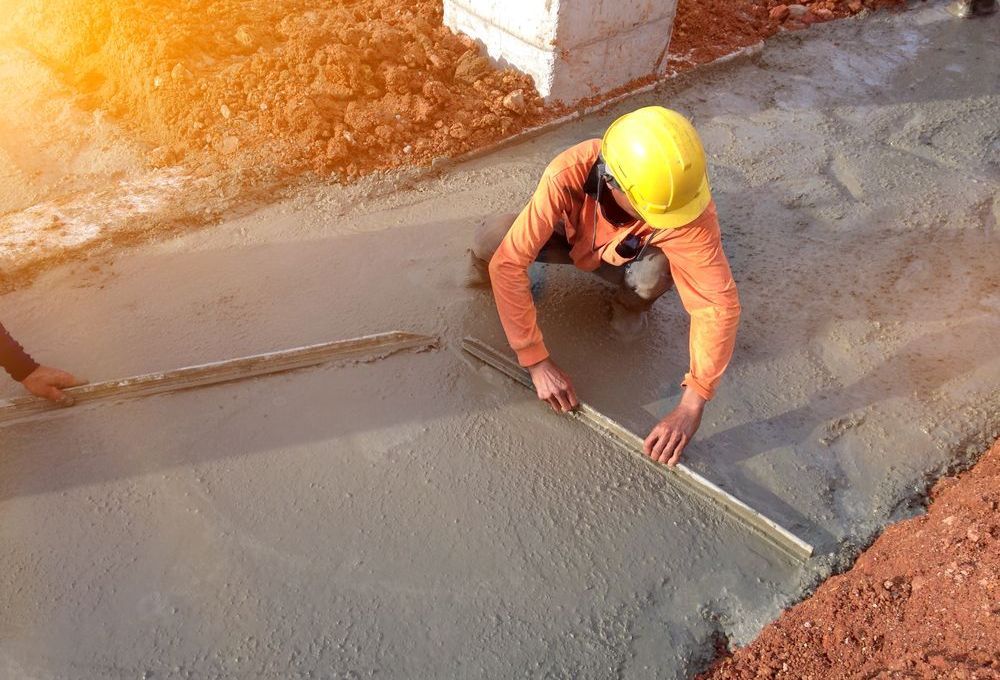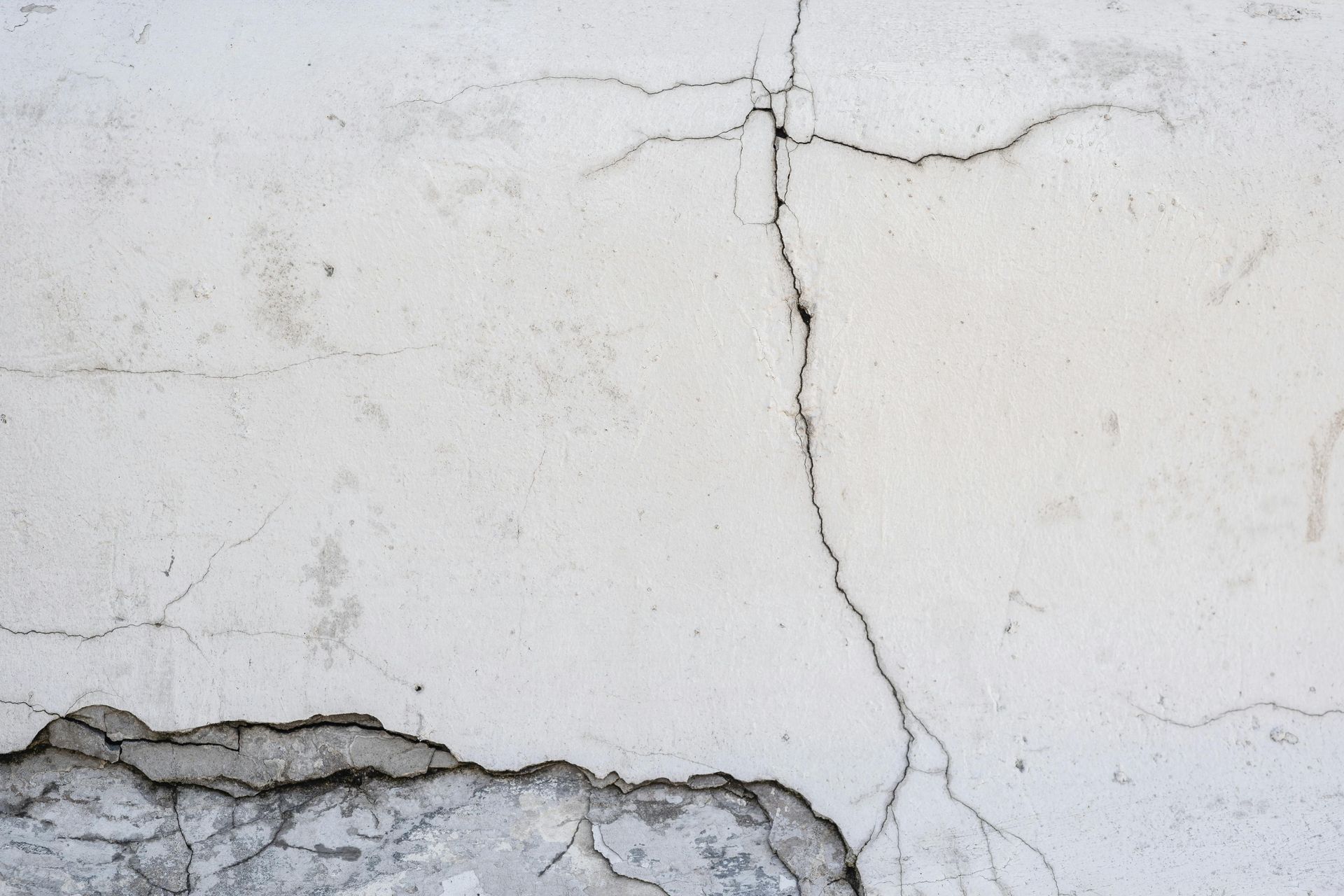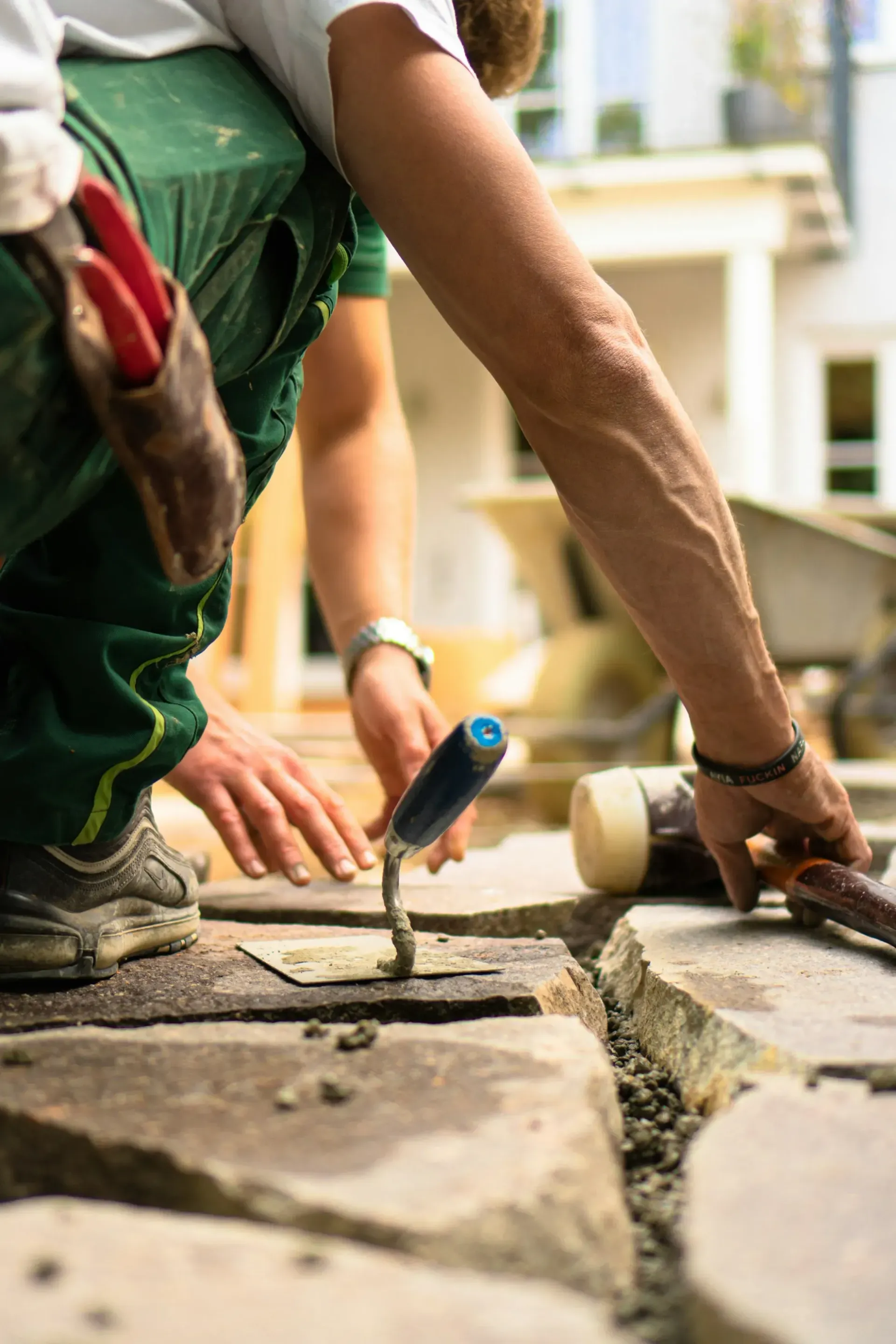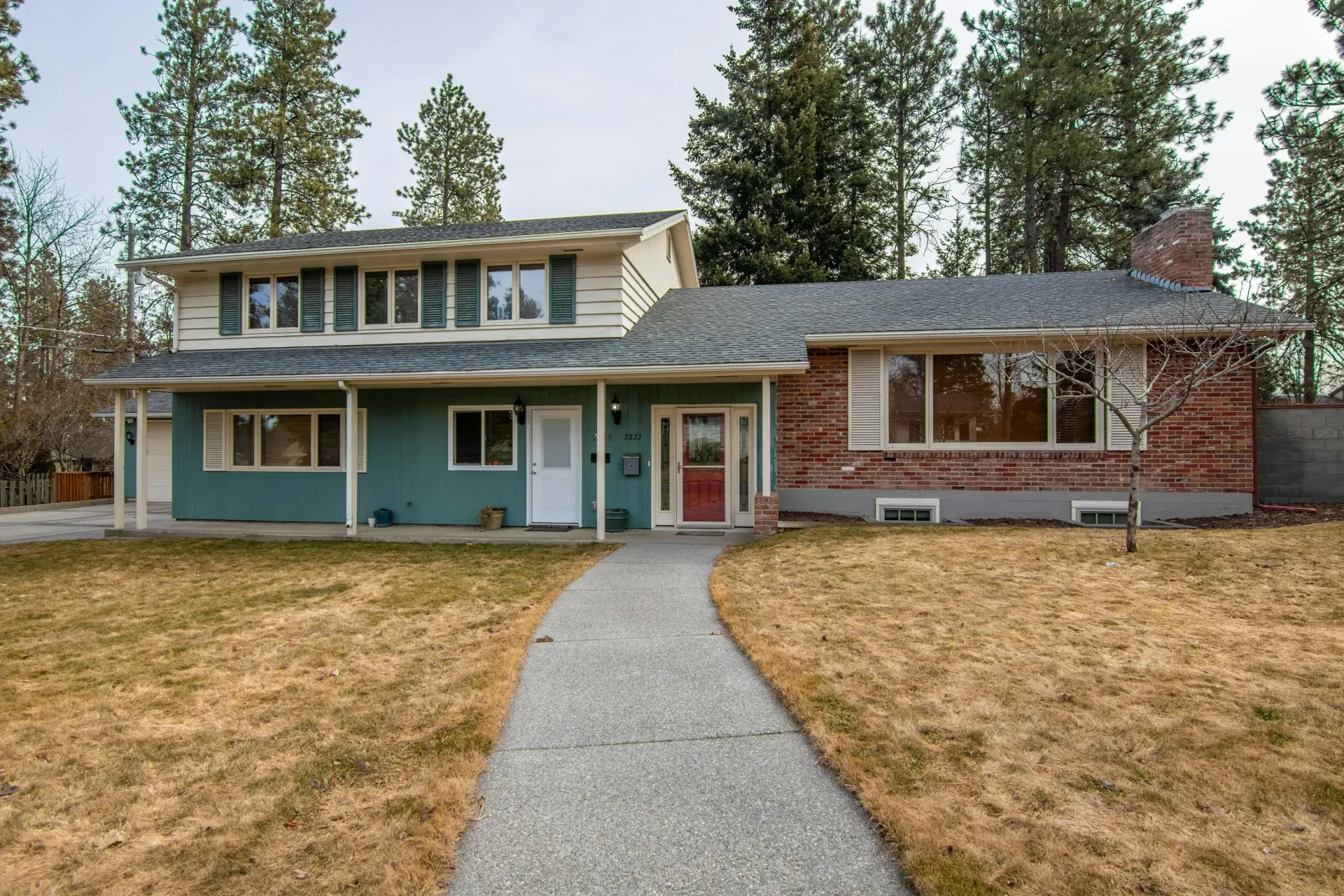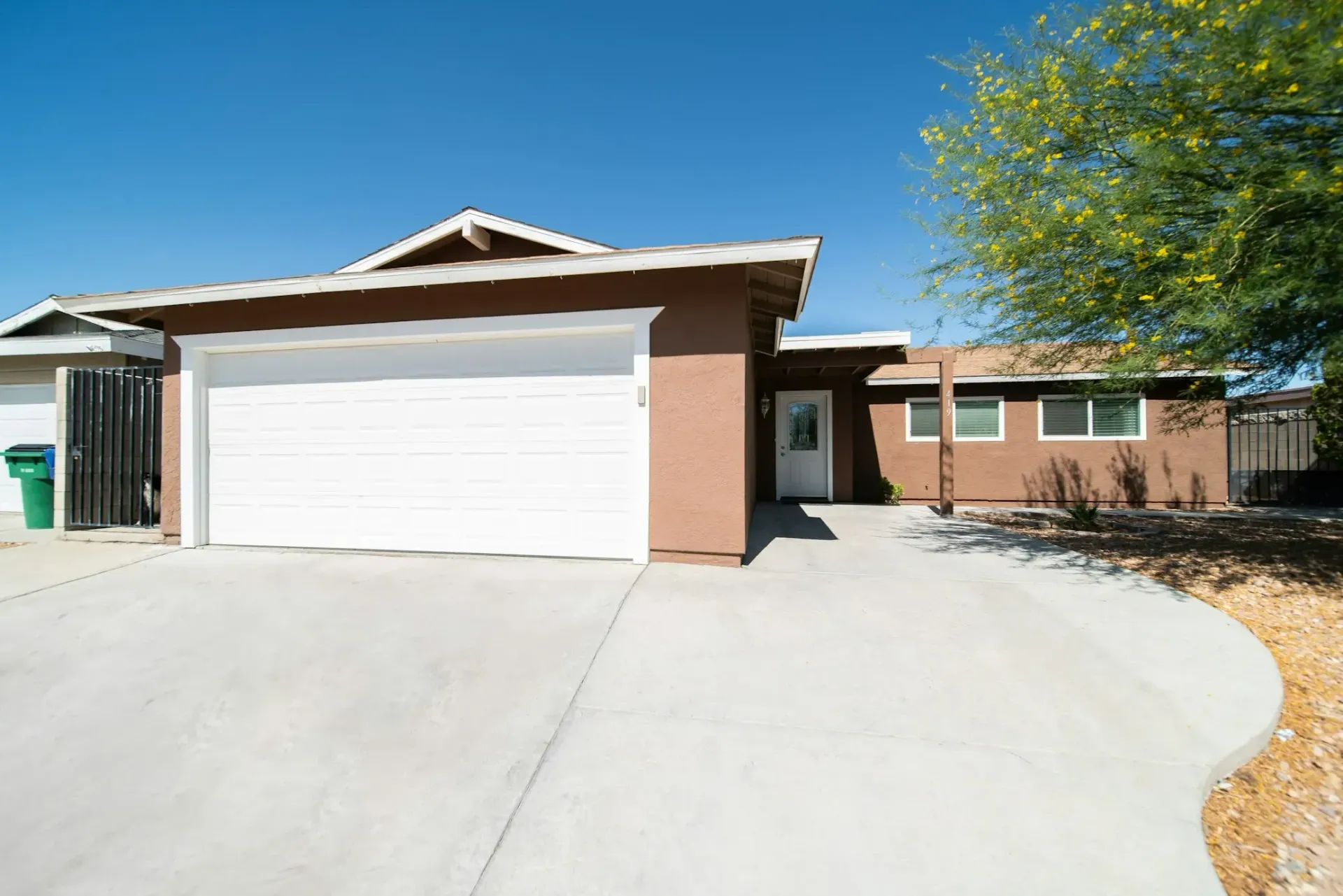Is a Concrete Walkway Worth the Investment?
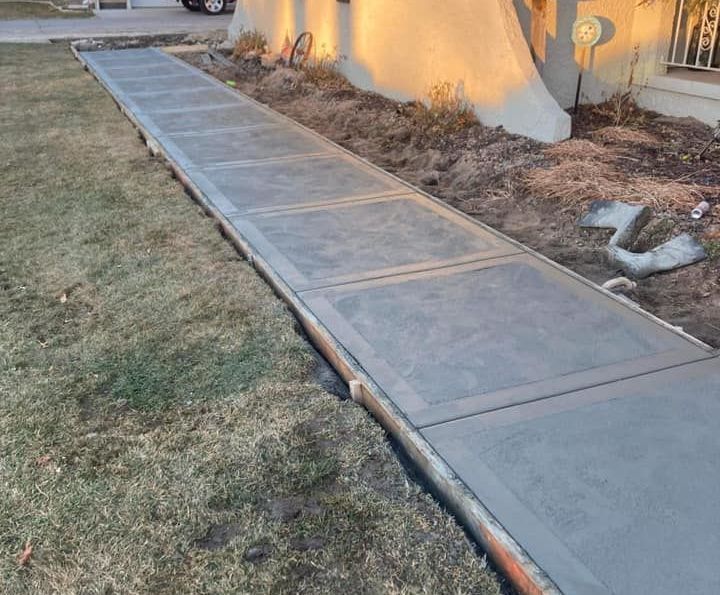
Concrete Walkways: Do They Really Pay Off in the Long Run?
A concrete walkway does more than just give you a path to walk on. It makes your home or business look better, adds function to your outdoor space, and lasts for decades. Whether you want a straight path to your front door or a decorative walkway for your backyard, choosing the right material matters.
So, is a concrete walkway worth the money? Yes, concrete walkways are worth the investment because they are durable, low-maintenance, and add value to your property. Unlike gravel or asphalt, concrete holds up against weather, resists wear, and doesn’t need frequent repairs.
In this guide, we’ll break down the benefits, compare concrete to other walkway materials, and explain how it saves you money over time. We’ll also go over maintenance, repairs, and ways to get the most value out of your investment.
When Is a Concrete Walkway the Best Investment?
A concrete walkway isn’t just for looks—it’s a smart choice when you need something strong, long-lasting, and low-maintenance. But is it the right investment for your home or business? Here’s when a concrete walkway makes the most sense.
For Homeowners
A concrete walkway can boost curb appeal and make your home more inviting. Whether you’re planning to stay for years or thinking about selling, a clean and sturdy walkway adds value. It also makes outdoor areas easier to navigate, especially for kids, older family members, and guests.
For Businesses
First impressions matter. A well-built concrete walkway gives your business a professional look while providing a safe and easy path for customers and employees. Unlike gravel or pavers, concrete stays smooth and even, reducing the risk of trips and falls.
For Rental Properties
If you own a rental property, a concrete walkway is a low-maintenance, long-term solution. It holds up better than asphalt or gravel, meaning fewer repairs and fewer complaints from tenants. A well-kept walkway also makes your property more attractive to renters.
How Much Value Does a Concrete Walkway Add?
A concrete walkway is more than just a path—it adds real value to a property. Whether you’re a homeowner, landlord, or business owner, a well-built walkway improves looks, function, and safety.
Boosts Curb Appeal
A smooth, clean walkway makes a home or business look more polished. It creates a welcoming entrance and enhances landscaping. For homeowners, this can make a big difference when selling, as buyers notice first impressions.
Increases Property Value
While a walkway alone won’t drastically raise your home’s price, it does add value by improving usability and aesthetics. A well-maintained concrete path can help attract buyers and increase perceived value, especially when paired with a good driveway and landscaping.
Improves Safety and Accessibility
Cracked or uneven walkways create trip hazards. Concrete provides a stable, even surface that’s safer for kids, older adults, and anyone using a wheelchair or stroller. Unlike gravel or pavers, concrete doesn’t shift or wash away over time.
Concrete Walkway vs. Other Materials: Which is the Best Choice?
Not all walkways are built the same. While concrete is a top choice for many homeowners and businesses, other materials like pavers, gravel, and asphalt are available. Here’s how they compare in cost, durability, and maintenance.
Concrete vs. Pavers
- Cost: Pavers cost $10 – $30 per square foot, while concrete costs $6 – $20 per square foot.
- Durability: Both materials last 25–50 years, but pavers may shift over time.
- Maintenance: Pavers require weed control and re-leveling, while concrete needs occasional sealing.
- Best for: Those who want
a decorative look with flexible design options but don’t mind extra maintenance.
Concrete vs. Gravel
- Cost: Gravel is the cheapest option, costing $1 – $5 per square foot.
- Durability: Gravel shifts and scatters over time, while concrete stays in place for decades.
- Maintenance: Gravel needs regular raking and refilling, while concrete is mostly maintenance-free.
- Best for: Temporary paths or areas needing good drainage, not long-term walkways.
Concrete vs. Asphalt
- Cost: Asphalt is similar in price to basic concrete at $5 – $15 per square foot.
- Durability: Asphalt lasts 15–20 years, while concrete lasts 25–50 years.
- Maintenance: Asphalt needs frequent sealing and can soften in extreme heat, while concrete is more stable and longer-lasting.
- Best for: Areas with
high vehicle traffic, but for walkways, concrete is a
better long-term investment.
Which One Should You Choose?
If you want a long-lasting, low-maintenance, and cost-effective walkway, concrete is the best choice. Pavers offer more design options but require more upkeep. Gravel is cheap but not practical for long-term use. Asphalt works well for driveways but needs frequent maintenance.
How Long Does a Concrete Walkway Last? (Longevity & Maintenance)
A concrete walkway is built to last. When installed correctly and properly maintained, it can stay in great shape for 25 to 50 years. Unlike other materials that wear down faster, concrete remains a strong, reliable choice for the long haul.
What Affects a Concrete Walkway’s Lifespan?
- Quality of Installation – A professional installation with proper mixing, leveling, and curing makes a big difference.
- Climate and Weather – Concrete holds up well in most conditions, but extreme freeze-thaw cycles can cause cracks if not sealed properly.
- Traffic and Use – Heavy foot traffic or vehicles (if used as a driveway extension) can wear it down over time.
- Regular Maintenance – Occasional sealing and quick repairs can extend its lifespan.
How to Keep a Concrete Walkway in Good Shape
- Seal it every 2–5 years to protect against moisture and stains.
- Clean it regularly by sweeping or hosing off dirt and debris.
- Fix small cracks early to prevent bigger issues.
- Avoid using harsh de-icing salts in winter, as they can weaken the surface.
Compared to materials like asphalt or pavers, concrete requires much less maintenance over time. With minimal upkeep, you can keep your walkway looking great for decades.
Cost vs. Long-Term Savings: Is It a Smart Financial Choice?
A concrete walkway may have a higher upfront cost than gravel or basic asphalt, but its durability and low maintenance make it a better long-term investment. Instead of replacing or repairing it every few years, concrete gives you a reliable path for decades.
Breaking Down the Costs
- Installation Costs: $6 – $20 per square foot, depending on design and site prep.
- Average Lifespan: 25–50 years with proper care.
- Yearly Cost Over Time: Less than
$1 per square foot per year when spread over its lifespan.
Comparing Long-Term Costs to Other Materials
Concrete walkways cost more upfront than gravel or asphalt, but they last much longer. Gravel is cheap at $1 – $5 per square foot, but it needs frequent refilling and maintenance. Asphalt costs about the same as basic concrete, around $5 – $15 per square foot, but it requires sealing every few years and doesn’t last as long. Pavers offer a decorative look and last as long as concrete, but they cost more at $10 – $30 per square foot and require weed control and re-leveling over time.
Why Concrete Saves You Money Over Time
- Minimal repairs compared to asphalt and pavers.
- No need for frequent replacements like gravel.
- Lower overall cost per year due to long lifespan.
If you’re looking for a balance of affordability, longevity, and low maintenance, concrete is the smartest financial choice.
When Should You Repair or Replace a Concrete Walkway?
A concrete walkway is built to last, but over time, wear and tear can happen. Knowing when to repair minor issues and when it’s time for a full replacement can save you money and keep your walkway safe.
Signs That Your Walkway Needs Repairs
Not all cracks or surface damage mean you need a new walkway. Here are common issues that can be fixed with simple repairs:
- Small cracks (less than ¼ inch wide): Can be sealed to prevent further damage.
- Surface discoloration or minor stains: Can often be cleaned or resurfaced.
- Slight unevenness: Can be leveled with concrete grinding or patching.
When Is It Time for a Full Replacement?
If the damage is too severe, repairs may not be enough. Consider replacing your walkway if you notice:
- Large, deep cracks: Wide cracks that keep spreading can indicate structural issues.
- Major sinking or shifting: If sections of the walkway have shifted, it may be a sign of foundation problems.
- Extensive surface damage: If the top layer is crumbling or heavily pitted, resurfacing may not be enough.
Upgrading to a Decorative Walkway
If your current walkway is still functional but looks outdated, upgrading to a stamped or stained design can improve your home’s curb appeal without a full replacement. Decorative concrete offers durability while enhancing the look of your outdoor space.
How to Get the Best ROI on Your Concrete Walkway
A concrete walkway is a solid investment, but making the right choices during installation can maximize its value. From design to professional installation, here’s how to get the best return on your investment.
Choose the Right Design for Your Property
The design of your walkway should match the style of your home or business. A basic broom-finished concrete walkway works well for functionality, but if you want a boost in curb appeal, consider stamped, stained, or exposed aggregate finishes. A well-designed walkway not only looks good but also adds to the resale value of your property.
Invest in Professional Installation
A poorly installed walkway can crack, shift, or wear down faster, leading to costly repairs. Hiring a professional ensures proper mixing, leveling, and curing, which helps extend the lifespan of the walkway. A good contractor will also take care of site preparation and drainage to prevent future issues.
Keep Up with Basic Maintenance
A concrete walkway is low-maintenance, but a little care goes a long way. To keep it in top shape:
- Seal it every 2–5 years to protect against moisture and stains.
- Clean it regularly to prevent buildup of dirt and debris.
- Fix small cracks early before they turn into bigger problems.
Get an Expert Opinion
If you’re unsure about the best walkway style, material, or installation method, consulting with a concrete expert can help. A professional can guide you through cost-effective options that fit your needs and budget.
For more insights, check out Your Ultimate Guide to Concrete Services in Grand Island, Nebraska to learn about different concrete solutions.
Conclusion & Next Steps
A concrete walkway is one of the best investments you can make for your home or business. It adds curb appeal, increases property value, and lasts for decades with minimal upkeep. Unlike gravel or asphalt, concrete provides a long-term, cost-effective solution that requires fewer repairs over time.
Key Takeaways:
- A concrete walkway is worth the investment because it’s durable, low-maintenance, and adds value to your property.
- Compared to other materials, concrete offers the best balance of cost, longevity, and ease of maintenance.
- Repairs can extend a walkway’s lifespan, but severe cracks or sinking may require a replacement.
- To get the best return on investment, choose the right design, hire a professional, and keep up with basic maintenance.
If you’re ready to install a concrete walkway, Maine Street Concrete can help. With expert craftsmanship and high-quality materials, we ensure your walkway is built to last.
Contact us today for a free quote and get started on your project.


